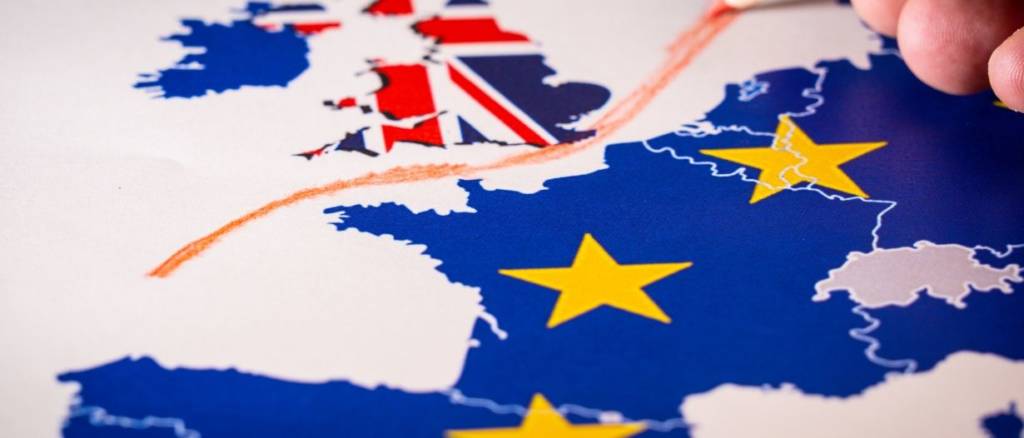EORI numbers – or economic operator indicator numbers – are essential for exporters. Based off a company’s VAT number, an exporter needs an EORI in order to complete a Customs Declaration. Till now, UK businesses have not needed to complete such documentation in order to sell into Europe, but this will change with Brexit. TFG heard from Lesley Batchelor.
In August, HMRC estimated that there were 240,000 companies in the UK who only export to the EU and would, therefore, need to enroll with an EORI number ahead of Brexit. At the time, only 71,000 companies had done this.

The announcement in the middle of August that HMRC would begin ‘auto-enrolling’ companies with EORI numbers – a practice is done in other countries – was, therefore, a necessary one, given the impending Brexit deadline. HMRC had previously been reluctant to auto-enrol companies, instead of wanting businesses to properly engage with the export process by voluntarily taking the steps needed to get an EORI number before learning how to complete Customs Declarations.
Time is now very much of the essence and businesses will still need to ensure that they know how to complete key Customs processes like declarations, or at the very least be sure that a Customs broker is doing this competently on their behalf. However, should a ‘No Deal Brexit’ come to pass on October 31st, then there are clearly up to hundreds of thousands of businesses who are not properly prepared for the impact this will have.
It is, therefore, our imperative, as trade supporting organisations, to tell our members, followers and the wider business community what they need to do. However, it is just as important to assure these businesses that exporting is perfectly doable, whatever happens with Brexit. You just need to apply yourself and plan for how you can mitigate upcoming risks.
We have a saying at the Institute of Export & International Trade that exporting is easy when you know how. For those of us who have been exporting beyond the EU for decades, Customs checks and piles of documentation will already be familiar. We already know about Customs declarations, rules of origin and looking through tariff schedules.
The key thing to remember is that whatever happens in terms of Brexit and any potential new trade deals in the works, the processes of global trade will remain the same. As with anything, you will need to approach trade with a mindset of wanting to do it properly. If you don’t look into the legal and fiscal requirements for your goods to be moved into a new country, then you risk delays at the border, potential fines, and reputational damage.

And remember, there is no one-size-fits-all approach – every exporter’s journey is different. There are approximately 5,300 article/product descriptions arranged in 97/99* chapters in the Harmonized Commodity Description and Coding System (HS), each given its own HS Code (a six-figure product classification number). You need to know what code your product falls under to establish what duty or taxes are payable, or other factors including anti-dumping duty, quotas, inspections and licenses.
There is no average tariff, there is no average sector and there is certainly no simple answer to the question of what you need to do to succeed in a new market. For example, tariffs for pharmaceuticals tend to be 0% rated, whereas ceramics can vary from 5% – 25% depending on the component parts, materials, and eventual shape. Agriculture can range from 30% – 45% – or even more in some cases – and champagne attracts 20%.
And Brexit isn’t the only significant step ahead in Global Trade. There are the new ICC Incoterms®2020 rule changes coming up which will impact everything from trade finance to shipping terms to sales contracts – and for which the Institute of Export & International Trade are ICC-authorised providers of training for. There’s the continuing trade wars between the USA and China. Technological advances in international trade continue to come at a pace too, from ‘Smart Ports’ to blockchain.
The UK should also remember that there is a world beyond the EU. The UK recently signed a continuity deal for trade with South Korea – the 13th of 38 such agreements the UK could finalise in the run-up to Brexit – suggesting that there is life after Brexit. ONS figures in April this year showed that all of the UK’s fastest-growing export markets for 2018 were emerging ones, including India (up 19.3% to £8.0bn), Nigeria (up 18.3% to £2.7bn), Thailand (up 17.8% to £2.2bn) and Kuwait (up 14.1% to £2.5bn).
As with any market, including the EU, you need to plan and make sure you know what you’re doing when exporting. If you’d like to learn, please do get in touch – at the Institute we provide a range of training courses, qualifications and support services to ensure you exporting can be easy for you.

































